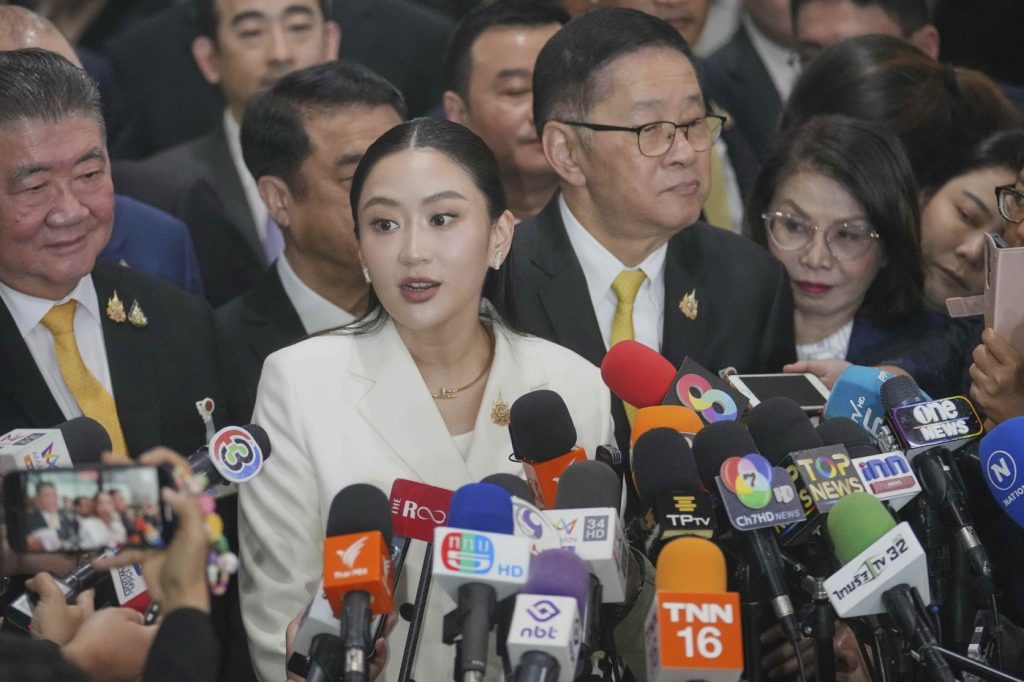BANGKOK (AP) — Thai Prime Minister Paetongtarn Shinawatra faced a no-confidence motion in parliament on Monday, as opposition parties accused her of being unduly influenced by her father, former Prime Minister Thaksin Shinawatra, and mismanaging the country. The no-confidence vote is set to take place on Wednesday, and Paetongtarn is expected to secure support from her ruling coalition, which holds a majority in the House of Representatives.
The head of the opposition, Natthaphong Ruengpanyawut, criticized Paetongtarn for failing to tackle several chronic issues plaguing Thailand, including a struggling economy, severe air pollution, crime rates, and pervasive corruption. He claimed that her administration prioritizes the interests of her family, particularly that of Thaksin Shinawatra, who remains a polarizing figure in Thai politics. Thaksin was overthrown during a military coup in 2006 and has since lived in exile before recently returning to Thailand, creating a legacy of division within the country.
Paetongtarn leads the Pheu Thai Party, which is among a series of populist parties associated with Thaksin. These parties have historically garnered support from lower-income, rural voters, setting them against royalist elements, the military, and urban elites who view Thaksin as a threat to their status and that of the revered monarchy.
Natthapong, who leads the People’s Party, described the ruling coalition as a result of political maneuvering designed to facilitate Thaksin's return to Thailand. This coalition has formed after Pheu Thai aligned itself with previously conservative rivals, which has drawn criticism from various quarters.
Accusations against Paetongtarn also include claims made by Prawit Wongsuwan, head of the Palang Pracharath Party, who alleged that she had falsely declared her assets—a charge she publicly denied. These developments come at a tumultuous time for Thai politics, which has been marked by instability, especially given the recent events surrounding Thaksin's return.
The political landscape in Thailand is in flux, with the shadow of Thaksin's influence looming large over Paetongtarn's administration, as she attempts to navigate the turbulent waters of governance while facing pressure from both the opposition and members of her own coalition. As the no-confidence vote approaches, all eyes will be on the decision of parliament, which will determine the stability of Paetongtarn's leadership amidst ongoing accusations and challenges.










